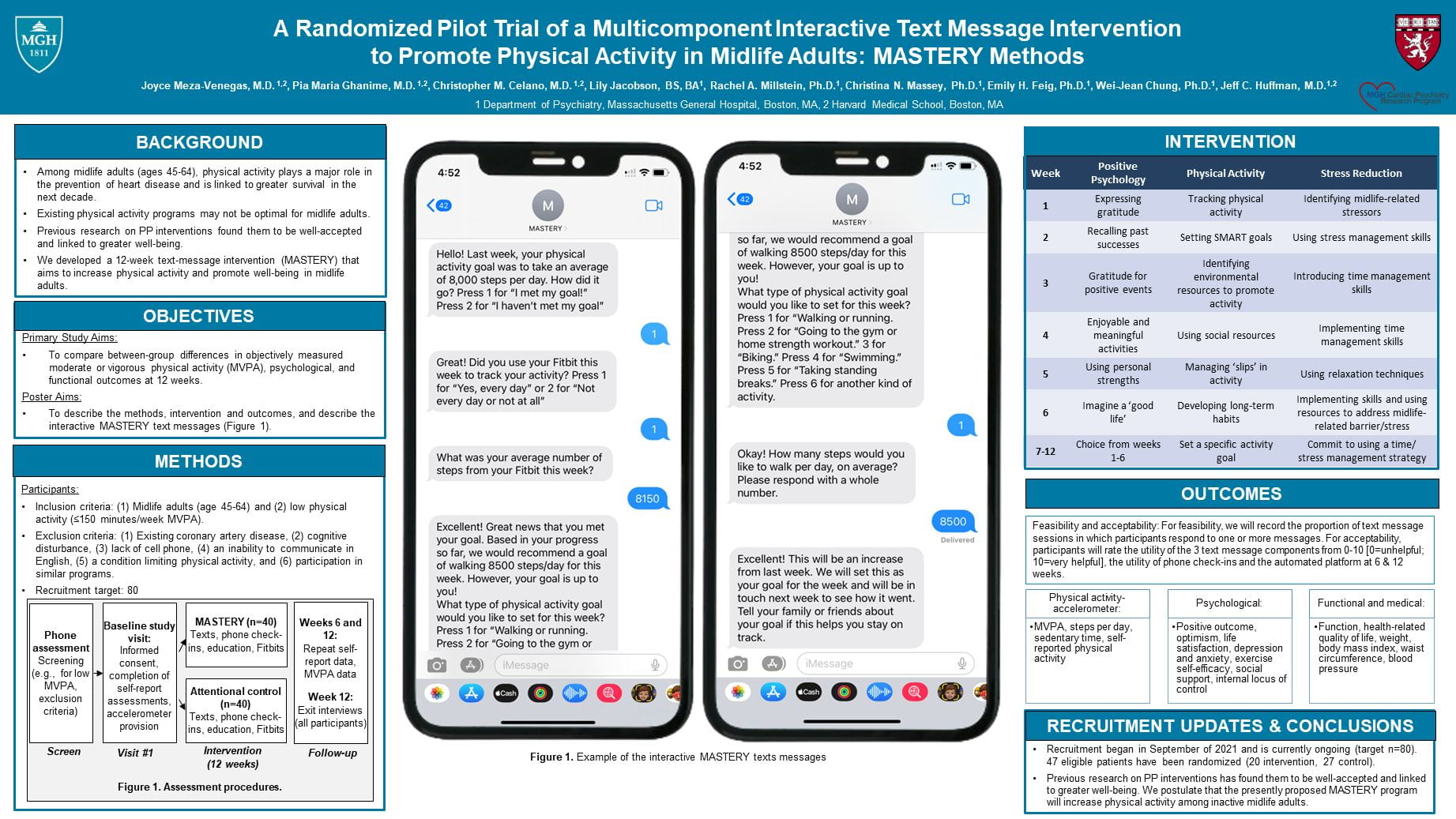Scientific Abstract
Background: Physical activity plays a major role in the prevention of heart disease. However, fewer than 20% of midlife adults complete recommended physical activity. Previous research on positive psychology (PP) interventions found them to be well-accepted and associated with greater well-being. A remotely delivered program combining PP, physical activity goal-setting, and midlife-specific content may address gaps in existing physical activity interventions among midlife adults. By completing the MASTERY pilot trial, we will learn whether the program is feasible, well-accepted, and leads to greater improvement in physical, psychological and functional outcomes of midlife adults.
Methods: This is a randomized, two-arm, controlled study. Eligible participant must be in midlife status (age 45-64) and have a low baseline physical activity (≤150 minutes/week of MVPA). Exclusion criteria are existing coronary artery disease, cognitive disturbance, lack of cell phone, inability to communicate in English, condition limiting physical activity, and participation in similar programs. Initially, if low MVPA with Actigraphy is confirmed, participants will be assigned to the MASTERY TMI or attention-matched control TMI condition. In MASTERY, participants will have interactive, two-way text message ‘sessions’ once weekly for 12 weeks.
Results: At weeks 6 & 12, physical activity, psychological, functional, and medical outcomes will be measured. Physical activity outcome measures include MVPA and psychological outcomes include positive affect. Finally, function, health-related quality of life, weight, body mass index, waist circumference, and blood pressure will be measured. For feasibility, proportion of text message sessions in which participants respond to one or more messages will be recorded. For acceptability, at 6 & 12 weeks, participants will rate the utility of the text message components on 0-10 scales [0=unhelpful; 10=very helpful].
Conclusions: Previous research on PP interventions found them to be well-accepted and linked to greater well-being. We postulate that the presently proposed MASTERY program will increase physical activity among inactive midlife adults.
Search posters

